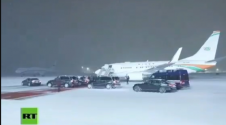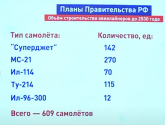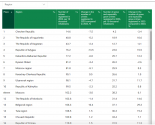And when you're talking about control and surveillance, remember that Russia is relying on Huawei equipment for its telecoms networks. Western suppliers such as Nokia and Ericsson are no longer an option for Russia, and Russia doesn't have a domestic supplier.
You are wrong. The Russians have their own 4G LTE equipment. And they should have 5G equipment eventually.
Just think about it. The Russians make their own radars. And they even have cellphone jammers.
If Nokia and Ericsson, from Finland and Sweden, with populations smaller than that of Moscow can make such systems what makes you think the Russians cannot do them.
And if you're talking about aviation, foreign airlines will be wary about operating an airliner from a Russian company which has been sanctioned. The EU already blocked the MC-21 airliner from EU airspace.
The Russians will be able to sell to countries sanctioned by the West like Cuba, Iran, Venezuela, or North Korea. Not that this matters too much when they will be quite busy making aircraft for themselves in for the mid term.
They might also sell to countries in Africa, South America, and Southeast Asia which don't fly into Western airports. They did in Soviet times.
Plus I don't see how Russia can show aviation competency when:
1. the CR-929 airliner is becoming a Chinese project with the Russians as a parts supplier
Other than some matter of prestige nothing changed really.
2. the Russian MC-21 will face competition from the C-919, which should be a more widespread aircraft, cheaper and not subject to sanctions
The Western parts suppliers will be able to squeeze the C919 to make sure it won't pose a problem for them in the mid term. They can do the same thing they did to the Superjet. Jack up the prices of the engine. And that's if they don't just sanction sales of the engine altogether. They did this to Russia in the 1990s. First they wouldn't allow Russia to buy American Pratt & Whitney engines for the Tu-204 until the Russian government dropped import taxes on Boeing aircraft so they could be sold to Aeroflot. Then the Russian government dropped the import taxes but the Pratt & Whitney engines were never delivered. Pratt & Whitney then acquired Aviadvigatel. Who made the Russian PS-90 engines for the Tu-204. And that's when Boris Yeltsin was President of Russia.
Isn't the Superjet effectively on life support now?
Production has stopped? and the existing aircraft gained a reputation for being expensive and unreliable even before the war happened
There was no production at all last year. They have been replacing all the components on the aircraft. They are flying right now an aircraft where they substituted most of the systems with Russian ones but that still uses the SaM-146 engines from Powerjet (UEC Saturn/Safran). The PD-8 (UEC Saturn) engines passed the flight tests on the Il-76 test aircraft. They also have another SJ-100 aircraft with the PD-8 engines that has been running tests with the engines on the ground. It hasn't received permission to do flight tests yet.
The issues with reliability were because of the engines and lack of getting spare parts and support on time. Once they make all the components in Russia they will be able to control that problem themselves. Besides this issue was overstated. In Russia the support was just ok. Several companies use the aircraft. Not all of them are state owned either. For example Azimut Airlines.
For existent Superjet aircraft they have a program of maintenance where they are making replacement components for things they used to import. They already made substitutes for the engine spark plugs and fuel filters for example. They made substitutes for the brake pads and are making substitutes for the tires.





